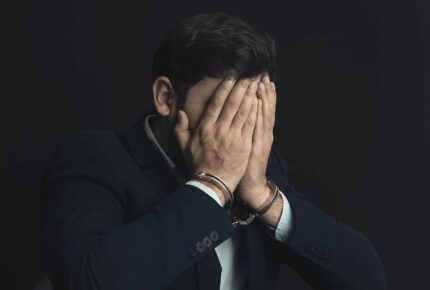

Being accused of digital piracy or a copyright-related crime can be a daunting experience, often leaving you feeling overwhelmed and unsure about what lies ahead. The legal landscape surrounding these offences is intricate, and the possible repercussions can seem severe. If you or someone close to you is facing allegations of copyright infringement or digital piracy, you might be asking yourself what these offences entail, what punishments are possible, and whether a suspended sentence could be an option. This article aims to demystify the process, explain the law, and provide practical guidance so you can make informed choices about your situation.
What is digital piracy and copyright infringement?
Digital piracy involves the unauthorised copying, distribution, or use of copyrighted material, typically through the internet or digital devices. This can include downloading or sharing movies, music, software, books, or other protected works without the permission of the copyright holder. In the UK, such acts are primarily prosecuted under the Copyright, Designs and Patents Act 1988, which was established to protect the rights of creators and owners of intellectual property in the digital age.
Piracy can take many forms, from uploading a single song to a file-sharing site, to running large-scale operations that distribute thousands of illegal copies. Some individuals may not realise that even sharing a film with friends or streaming content from unauthorised sources can constitute a criminal offence. Others may be fully aware and profit from distributing pirated material on a commercial scale.
The law recognises various types of copyright offences. For example, making unauthorised copies for personal use, distributing copyrighted works to the public, or circumventing digital rights management (DRM) protections are all separate offences. The seriousness of the charge, and the potential sentence, will depend on factors such as the scale of the infringement, the intent behind it, and the resulting harm to the copyright owner.
What are the typical sentences for digital piracy and copyright offences?
Penalties for digital piracy and copyright violations in the UK can range significantly, depending on the specifics of the case. Courts treat these offences seriously, particularly when they result in substantial financial losses for rights holders or involve large-scale distribution. For the most egregious cases, custodial sentences of up to ten years are possible, along with unlimited fines.
However, sentencing is not uniform or automatic. Judges will consider a variety of factors, including the extent of the infringement, the motivation behind the offence, the damage caused, and the personal circumstances of the accused. For instance, someone who downloads a handful of songs for personal use may be treated more leniently than an individual who operates a website distributing thousands of illegal copies for profit.
Not every conviction leads to immediate imprisonment. Depending on the facts, the court may impose a community order, a financial penalty, or a suspended sentence. The outcome will depend on the details of the offence and the background of the defendant.
What is a suspended sentence and how does it operate?
A suspended sentence is a type of custodial sentence that is not put into effect straight away. Instead of being sent to prison immediately, the individual is allowed to remain in the community for a specified period – usually between six months and two years – provided they comply with certain conditions. These conditions might include performing unpaid work, attending educational or rehabilitation programmes, or refraining from using certain digital platforms.
If the person meets all the requirements and does not commit any further offences during the suspension period, they will not have to serve the prison sentence. However, if they breach the conditions or are convicted of another crime during this time, the original sentence can be activated, and they may be sent to prison.
Is a suspended sentence possible for digital piracy or copyright offences?
It is indeed possible for a court to impose a suspended sentence in cases involving digital piracy or copyright infringement, depending on the circumstances. The judge will weigh the seriousness of the offence, the defendant’s personal history, and their prospects for rehabilitation. If the court is convinced that immediate imprisonment is not necessary and that the individual is unlikely to reoffend, a suspended sentence may be considered appropriate.
For example, if the defendant’s involvement was minor, they have no previous convictions, and they have demonstrated genuine remorse, the court may be more inclined to suspend the sentence. Conversely, if the piracy was extensive, caused significant financial harm, or was motivated by commercial gain, the likelihood of a suspended sentence diminishes.
Remember that a suspended sentence is not available for every offence and is always at the discretion of the court. The judge will consider all the circumstances before deciding whether suspension is suitable.
What factors influence the court’s decision on a suspended sentence for digital piracy or copyright offences?
When determining whether to suspend a custodial sentence in cases involving digital piracy or copyright infringement, the court will take into account a range of factors:
- The scale and complexity of the offence: Was the piracy a one-off incident or part of a larger, organised operation? Did it involve multiple works, sophisticated methods, or deliberate attempts to hide the activity?
- Financial loss and number of victims: How much damage was caused, and how many copyright holders or creators were affected? Was the impact limited to a few individuals, or did it affect a wide range of rights holders?
- Level of planning and sophistication: Was the offence opportunistic, or did it involve careful planning and execution over a period of time?
- Role and responsibility: Was the individual the main organiser, a key participant, or a minor player? Did they abuse a position of trust, such as working in the media industry or having access to pre-release content?
- Personal circumstances: Factors such as age, health, family responsibilities, and previous criminal record are all relevant.
- Remorse and restitution: Has the individual admitted their wrongdoing, apologised, or made efforts to compensate those affected?
- Risk of reoffending: Is there evidence that the individual is likely to commit similar offences in the future?
- Ability to comply with conditions: Is the individual likely to adhere to the requirements of a suspended sentence?
Mitigating factors, such as genuine remorse, cooperation with the authorities, or steps taken to address underlying issues (such as addiction or mental health problems), can work in the individual’s favour. On the other hand, aggravating factors, such as repeated offending, attempts to conceal misconduct, or targeting vulnerable people, can make a suspended sentence less likely.
How serious does digital piracy have to be for a prison sentence?
Prison sentences are generally reserved for the most serious cases of digital piracy or copyright infringement that result in significant harm. Several factors increase the likelihood of a custodial sentence:
- Substantial financial losses: The greater the monetary damage inflicted on rights holders, the more likely a prison sentence becomes. Large-scale operations that result in losses for creators, publishers, or distributors are treated with particular severity.
- Targeting vulnerable individuals or critical content: Exploiting independent artists, small publishers, or distributing pre-release material is viewed extremely seriously by the courts.
- Sophisticated or organised schemes: Cases involving complex planning, multiple participants, or the use of advanced technology to evade detection often indicate a higher degree of culpability and premeditation.
- Previous convictions: A history of dishonesty, copyright infringement, or similar offences will demonstrate a pattern of behaviour and significantly increase the chances of a custodial sentence.
In addition to these factors, the court will also consider the overall impact of the piracy, including not just the financial loss but also the psychological distress caused to creators and the damage to public confidence in the protection of intellectual property.
If the offence was genuinely out of character, the financial impact was limited, or there are compelling personal circumstances (such as serious illness, a genuine effort at restitution, or a demonstrable lack of understanding of the full implications of the actions), the court may consider alternatives to prison.
How can I improve my chances of receiving a suspended sentence for digital piracy or copyright offences?
If you are hoping to avoid immediate imprisonment, there are several proactive steps you can take to improve your chances of receiving a suspended sentence:
- Seek specialist legal advice early: An experienced solicitor can help you understand the charges, build a robust defence, and present your case in the best possible light.
- Take responsibility and show remorse: Courts are more likely to be lenient if you acknowledge your wrongdoing and express genuine regret.
- Make efforts to compensate victims: If possible, assist in removing infringing material or help recover lost revenue. Demonstrating a willingness to make amends can be influential.
Where to get more help
If you or someone you care about is facing criminal charges for digital piracy or copyright infringement, remember that early intervention can make a significant difference to the outcome of your case. Contact our experienced, friendly, and professional team at Stuart Miller Solicitors today to get advice on next steps and start building your defence.
OUR COMMITMENTS TO YOU:
-
Responsive
A legal expert will consult you within 24 hours of making an enquiry.
-
Empathetic
We will always treat you with trust, understanding and respect.
-
Specialised
Your case will be handled by an expert who specialises in your type of offence.
-
Proactive
We will take early action to end proceedings as soon as it is practically and legally possible to do so.
-
Engaged
You will be kept updated on your case at all times. We will provide a named contact available to answer your questions.
-
Caring
We understand this is a difficult and stressful time for you and your family. Our team will support you every step of the way.
-
Tenacious
We will never give up on your case. We fight tirelessly to get you the best possible outcome.
